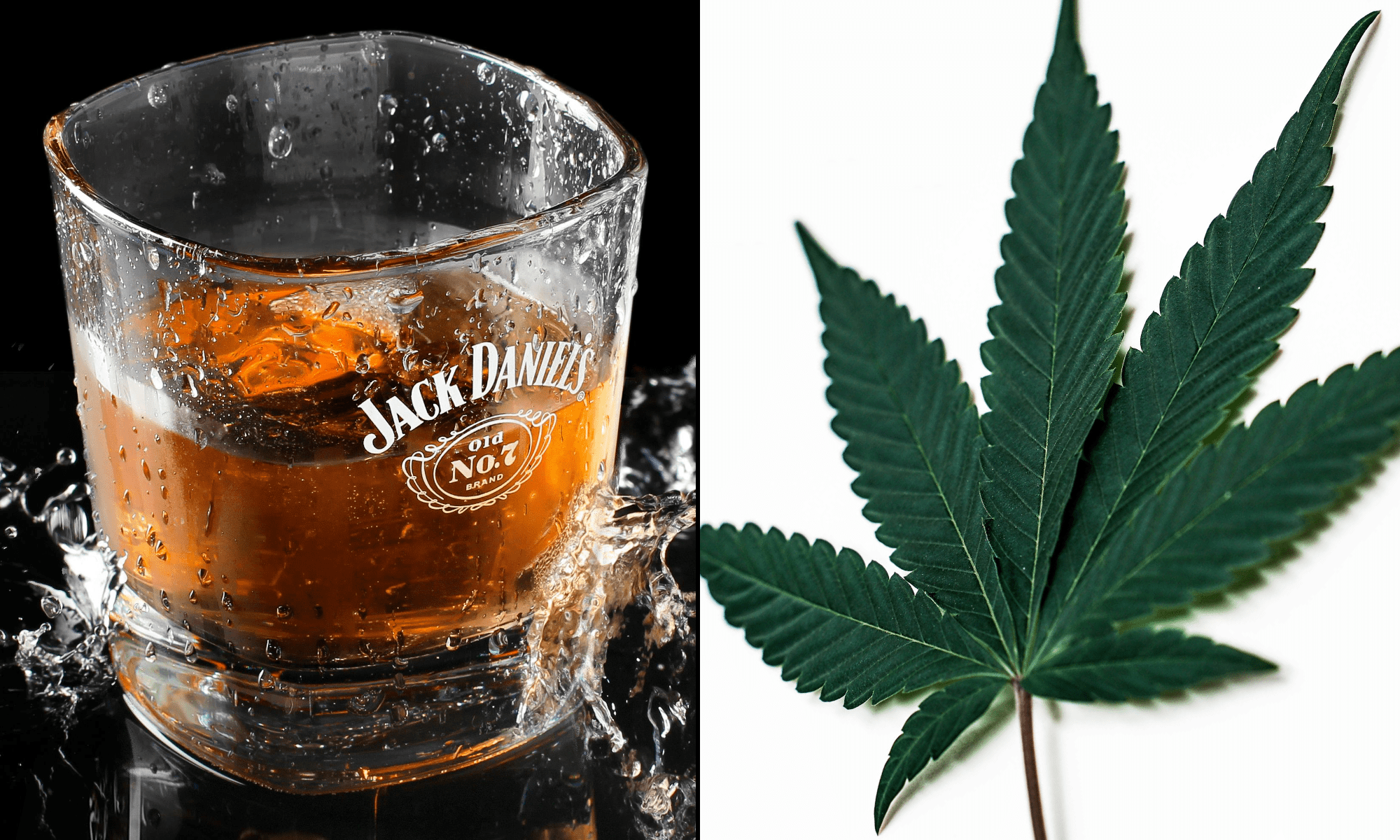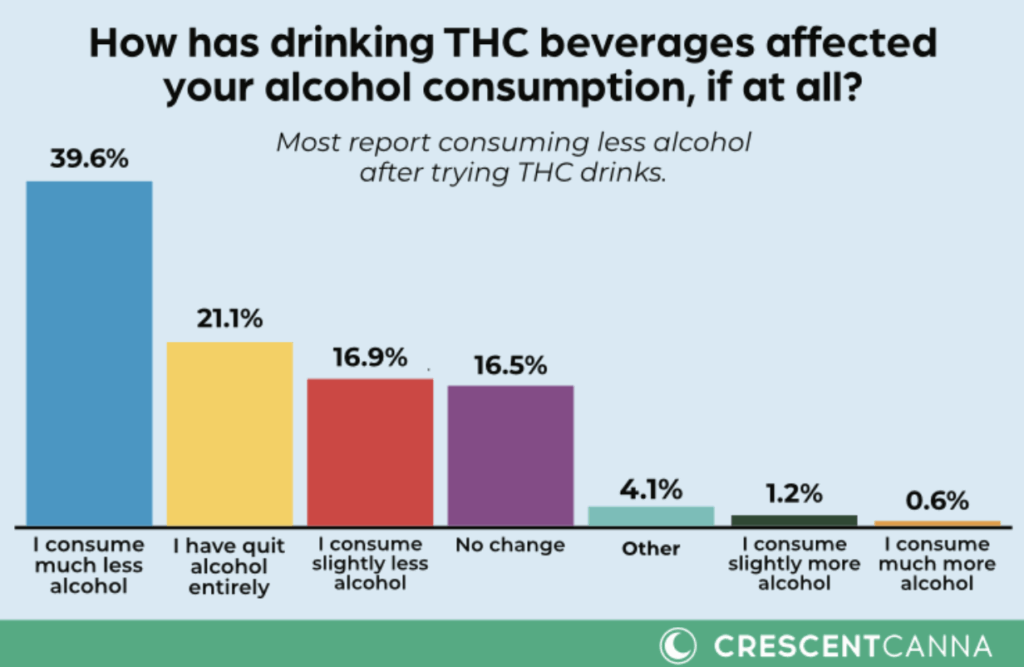Science & Health
Most People Who Drink THC-Infused Cannabis Beverages Reduce Their Use Of Alcohol, Survey Shows

Nearly four in five adults who drink cannabis-infused beverages say they’ve reduced their alcohol intake—and more than a fifth have quit drinking alcohol altogether—according to a new survey shared exclusively with Marijuana Moment.
The poll from THC beverage company Crescent Canna, which surveyed its customers about their habits and behavioral trends, found that 77 percent of respondents said they’ve reduced the amount of alcohol they consume since using cannabis drinks.
That includes 21 percent who said they’ve cut out alcohol altogether, adding another data point to the growing research on the marijuana’s substitution effect with other drugs.
While some might assume it’s the younger generation that’s most likely to have taken to cannabis drinks, the poll found that adults aged 35-54 constitute the largest demographic in the market, at 53 percent. Notably, more than a third of people who use THC drinks are over 55.

Here are some other data points from the survey:
- More than one in three respondents said they drink at least one THC beverage per week, and 45 percent said they consume at least three.
- Most THC beverage consumers (67 percent) said they use other cannabis products weekly, but almost a third said that, on average, they use alternative THC products less than once per week or never.
- A majority of respondents (67 percent) said they prefer to consume THC drinks at home, compared to more than 20 percent who said they like to drink them in social settings such as clubs (14 percent), parties (6 percent) and festivals (3 percent).
- Sixty-eight percent of adults said they purchased their THC drinks online.
- About 78 percent of respondents said they drink THC beverages too relax and unwind. Another 64 percent said they just enjoy the feeling the drinks elicit.
- Fifty-nine percent said they value cannabis beverages because they don’t get hangovers associated with alcohol, 52 percent said it helps them avoid the broader negative impacts of alcohol and 51 percent said the THC drinks help them sleep.
The survey involved interviews with 1,066 adults aged 21 or older who were part of Crescent Canna’s consumer database.
“Those surveyed reported using THC beverages as a complement to socializing and other pleasurable activities—both at home and away—and as a way to relax,” Crescent Canna said. “Not surprising at all since these are the same reasons so many people enjoy alcohol, as well as other forms of cannabis.”
“The survey clearly shows that consumers who try THC drinks are aware of their benefits and enjoy them for many of the same reasons they might otherwise use alcohol or other forms of cannabis, as well as for reasons not commonly associated with alcohol or cannabis use in general,” it said.
The survey comes after a leading alcohol industry group added a company that makes THC-infused drinks to its membership roster for the first time, furthering signaling the cultural shift.
Meanwhile, on the list of activities that Americans say is dangerous for pregnant women to engage in, using marijuana falls below drinking alcohol or smoking cigarettes, according to a new poll.
Marijuana use is linked to lower alcohol intake and diminished cravings in heavy drinkers, according to a recent federally funded scientific paper.
In a study earlier this year, scientists at the University of Sydney published a paper investigating the theory that non-intoxicating cannabidiol could mitigate problematic drinking issues. The research, published in the journal British Journal of Pharmacology with funding from the Australian National Health and Medical Research Council, found that “CBD represents a promising candidate to reduce voluntary alcohol consumption.”
According to a federally funded study published in the journal Nature earlier this year, CBD has potential to treat alcohol use disorder by reducing withdrawal symptoms and lowering the risk of relapse while also providing neuroprotective effects. The results of that study “underscore CBD’s potential therapeutic utility for alcohol use disorder (AUD) and provide mechanistic insights into its actions,” they noted.
This also comes at a time when younger Americans are increasingly using cannabis-infused beverages as a substitute for alcohol—with one in three millennials and Gen Z workers choosing THC drinks over booze for after-work activities like happy hours, according to a new poll of 1,000 young professionals.



